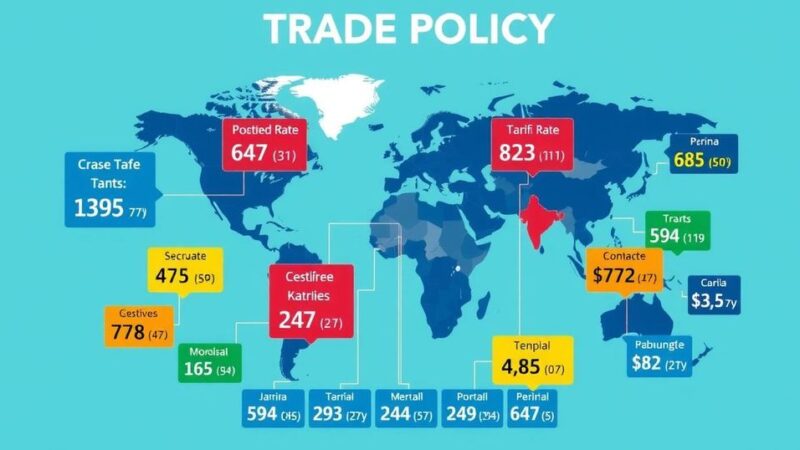The OECD has downgraded its global growth forecasts for 2025 and 2026, citing the impact of tariffs from the Trump administration. The projected growth for 2023 has been adjusted to 3.1%, with further reductions expected if tariffs escalate. India is expected to lead in growth, while Mexico may face a decline due to the tariffs.
The Organisation for Economic Co-operation and Development (OECD) has revised its global growth forecast downward for 2025 and 2026, highlighting the impact of tariffs initiated by United States President Donald Trump. In a recent report, the OECD has adjusted its expected global growth for 2023 to 3.1% from the previously anticipated 3.3%, and similarly, the forecast for 2026 has been lowered to 3.0% from 3.3%.
The report states, “Recent activity indicators point to a softening of global growth prospects.” It further emphasizes the existence of high policy uncertainty and notable risks, identifying the fragmentation of the global economy as a significant concern. Should there be an escalation in bilateral tariffs on all non-commodity imports and exports involving the United States, a decrease in global output by approximately 0.3% is anticipated by the third year.
The simulation of a 10% tariff indicates that Mexico would be particularly affected, experiencing a 1.3% decline in growth, while the United States might face a 0.72% drop. The OECD asserts, “Agreements that lower tariffs from current levels could result in stronger growth,” highlighting the potential benefits of tariff reductions.
In terms of regional growth forecasts, the OECD anticipates that India will exhibit the highest growth rates at 6.4% for 2025 and 6.6% for 2026. Conversely, Mexico is projected to be the only major economy facing decline, while Canada is expected to exhibit minimal growth. The eurozone’s growth is forecasted at 1.0% and 1.2% for 2025 and 2026, respectively.
In summary, the OECD’s revised global growth forecast indicates a downturn influenced by US tariffs, with a decrease in expected growth rates for the next few years. The report highlights concerns regarding global economic fragmentation and suggests that tariff reductions could enhance growth prospects. India is positioned as the fastest-growing economy, in stark contrast to the expected stagnation faced by Mexico and Canada.
Original Source: gna.org.gh






